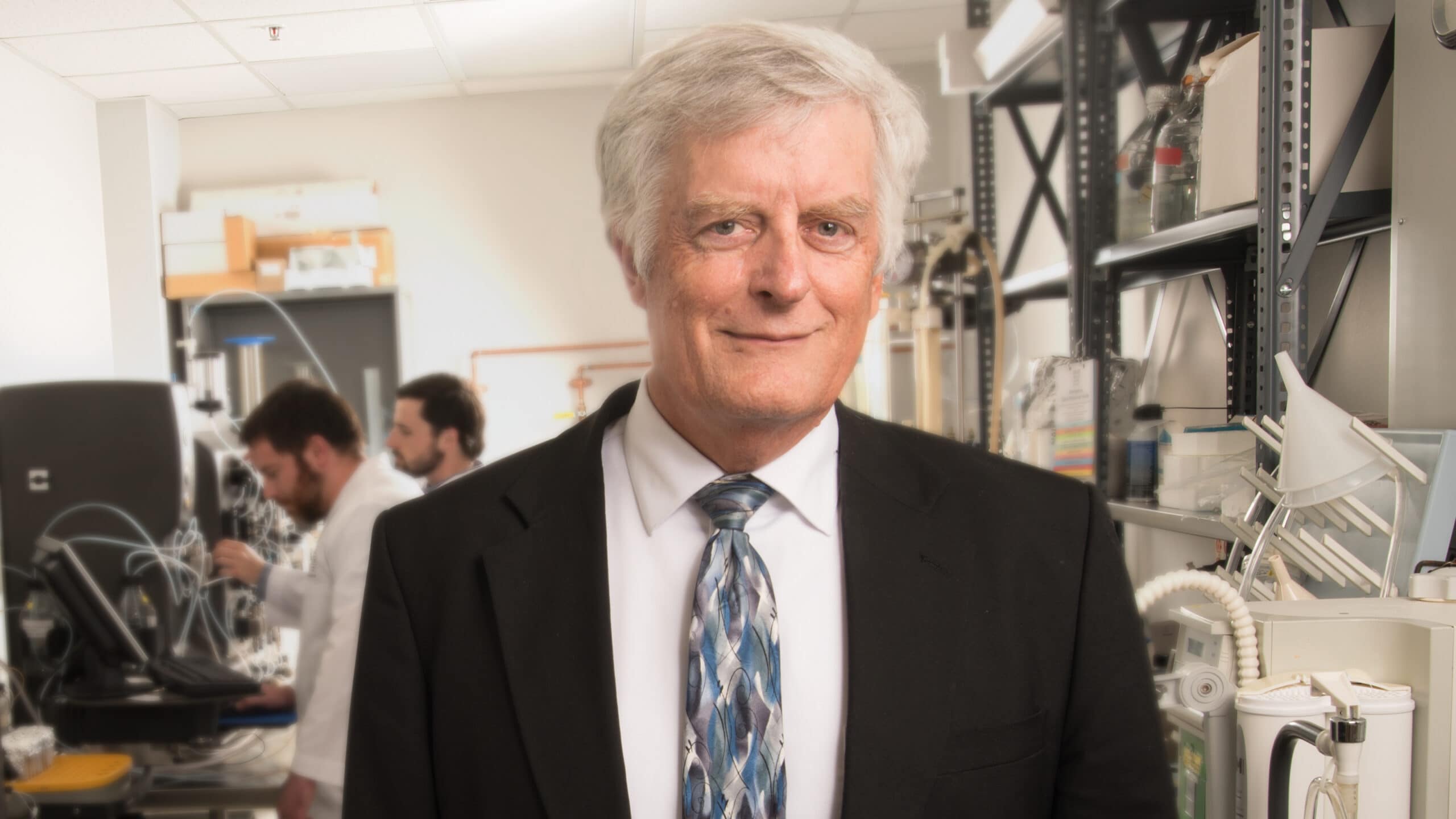View Larger Image

Lawrence Cornett, Ph.D., leads the Arkansas INBRE Program.
Three Grants Aiding UAMS-Based Program’s Efforts to Expand Research in Arkansas
| A University of Arkansas for Medical Sciences (UAMS)-based program will use $614,117 from three recent grants to expand biomedical research in Arkansas.
The three grants are administrative supplements to the Arkansas IDeA Network for Biomedical Research Excellence (INBRE) Program, awarded by the National Institute of General Medical Sciences at the National Institutes of Health (NIH). Arkansas INBRE’s primary support is from a five-year, $18.4 million grant renewal in 2020, which continues support of its efforts to expand and promote research at education institutions across the state. The program is led by Lawrence Cornett, Ph.D., a distinguished professor in the UAMS College of Medicine Department of Physiology & Cell Biology.
“These awards are an exciting addition to more than 20 years of INBRE grants and programs that have impacted nearly all of Arkansas’ colleges and universities,” Cornett said. “We are acquiring game-changing technologies, inspiring students who have or will become career scientists and physicians, and supporting biomedical research that is helping improve health in Arkansas and beyond.”
The three new grants support projects at UAMS, University of Arkansas, Fayetteville (UA), and the University of Central Arkansas (UCA). They are:
- A $237,650 grant supporting the purchase of an Illumina NextSeq 2000 for genome sequencing. It replaces an eight-year-old Illumina NextSeq 500 Next Generation Sequencing (NGS) system. The upgrade at the UAMS Genomics Core facility is led by UAMS’ Donald Johann Jr., M.D., a professor in the College of Medicine Department of Biomedical Informatics. The Genomics Core is an important resource for faculty and students across Arkansas who are conducting cutting-edge biomedical research. The upgrade will improve genomics services to all users, and it will strengthen UAMS’ efforts to obtain National Cancer Institute Designation.
- A $172,966 grant to support a collaboration between UAMS’ Tiffany Weinkopff, Ph.D., an assistant professor in the College of Medicine Department of Microbiology and Immunology, and Gregory Naumiec, Ph.D., an associate professor in the Department of Chemistry & Biochemistry at UCA. Their project aims to develop and test a potential drug’s effectiveness against parasites that cause cutaneous leishmaniasis, skin sores that can occur after being bitten by sandflies.
- A $153,135 grant to support an INBRE collaboration involving UA researchers Susan Gauch, Ph.D., Kyle Quinn, Ph.D., and Google scientists to train data science students and faculty in IDeA states, including Arkansas. There are 23 IDeA states (and the Commonwealth of Puerto Rico), which were established in 1993 to broaden the geographic distribution of NIH funding.
A fourth active INBRE supplement received a second year of funding in 2022. That grant of $50,666 supports continued research on COVID-19 vaccine hesitancy and is led by Pearl McElfish, Ph.D., professor and director of the Office of Community Health & Research at the UAMS Northwest Regional Campus.
Cornett noted that the supplement has produced significant published results, including, “Factors Influencing COVID-19 Vaccine Decision-Making among Hesitant Adopters in the United States.”